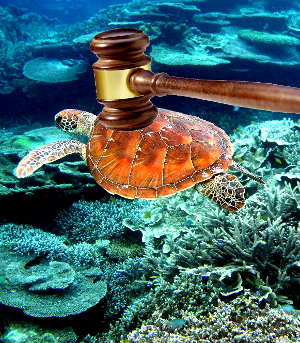Reef's ruin tipped without shift
 Environmental groups say it will take $500 million and a big shift in attitude to protect the Great Barrier Reef for the future.
Environmental groups say it will take $500 million and a big shift in attitude to protect the Great Barrier Reef for the future.
The UN’s environment arm says the Great Barrier Reef could be officially listed as “in danger”, unless funding and planning to cut pollution increases.
This would include a ban on dumping sediment into the reef’s waters, environment groups say.
The World Wildlife Fund and the Australian Marine Conservation Society have made a a joint submission to the UNESCO world heritage committee.
In it, they claim that big concerns about the ill-health of the reef are still not being addressed.
The groups call for $500 million for a scheme to prevent farming chemical-runoff from flowing on to the reef, and for more resources at the Great Barrier Reef Marine Park Authority to make it a “true champion of the reef”.
The submission urges the Federal Government to ban dumping of dredged seabed material into the reef’s world heritage area, not just the lesser ban on dumping in the reef’s marine park already imposed.
“If we lost 50% of the Taj Mahal there would be no question it would be on the world heritage in danger list, but when things are underwater they are less visible and less immediate,” said Richard Leck, a Great Barrier Reef campaigner at WWF.
“There is a strong case for listing the reef in danger but there is also a good chance it can be avoided if the federal government steps up its commitments. I’d say it’s too close to call at this stage.”
Leck, told reporters there was “concern and shock” from UNESCO about reports of the decline of the reef.
The Federal Government has deployed a “whole of government” approach to the Reef in recent weeks, but its focus appears more on improve the image of the Reef, rather than its actual quality.
The government is rabidly lobbying the 21 countries with members on the world heritage committee, to avoid the embarrassment of a decreased listing.
In fact, it has even invited journalists from member countries on an all-expenses-paid trip to the Reef, to report on conservation efforts.







 Print
Print